Drug overdoses can be incredibly dangerous, and those who suffer from them can experience incredible physical and psychological consequences.
That’s why it is not only important to know the symptoms of a drug overdose, but also how to respond to a drug overdose, why they occur, and who is most at risk of experiencing one.

There are a variety of symptoms that can manifest as a result of a drug overdose, and being able to identify them effectively can make all the difference.
Some of the most common symptoms of a drug overdose include: [1]
Of course, not all of the symptoms of drug overdose are visible, and for this reason it is important to communicate with those you are concerned about.
Those who are suffering an overdose may also experience:
These symptoms are the most common, but they can vary depending on a range of factors.
Not only can the quantity and strength of the drug taken have an effect, but so too can the age and health of the individual who has taken it. [2]
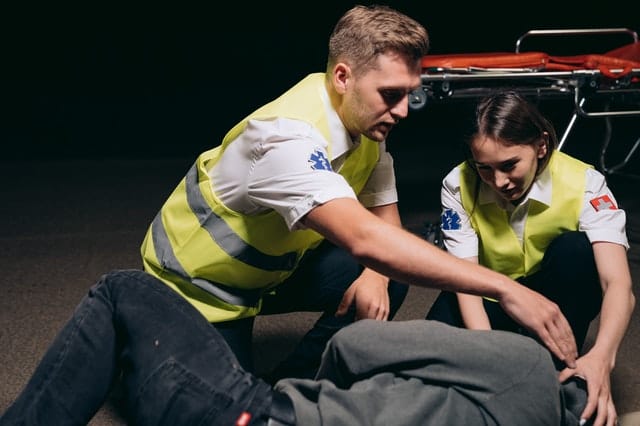
Once the signs and symptoms of a drug overdose have been detected, the next most important thing is to respond in a calm and helpful way.
The individual in question will need support as soon as possible, so it’s integral to follow a few key principles.
First and foremost, it is necessary to stay calm.
Becoming overly stressed or panicked will lead to time loss and irrational decision-making.
Even though it can be scary to face an overdose, taking a breath and reacting in a calm manner is vital.
Once composed, call for help.
Call 999 for an ambulance and explain that you are with someone who you suspect is suffering from a drug overdose.
An overdose is a medical emergency, so communicate clearly.
The operator is likely to ask a few questions regarding their state and the substances they have taken, so answer these as best you can.
Regarding the latter, be sure to include both dangerous substances and any prescription drugs you know the individual will have taken during the day.
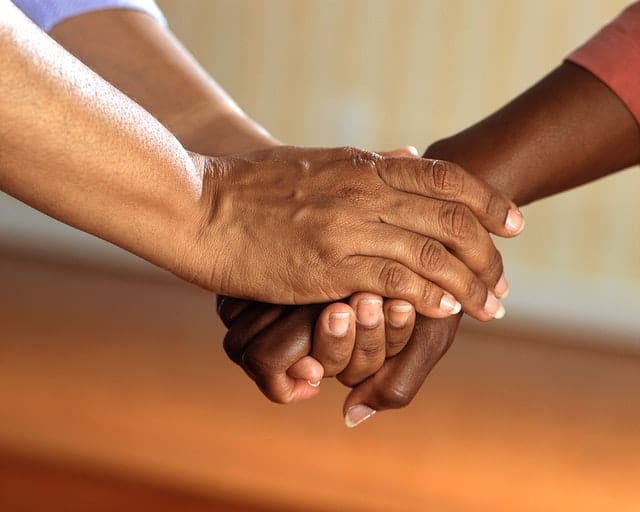
While waiting for help to arrive, there are a number of things you can do to ensure the person you are with is as comfortable and safe as possible: [3]
Once medical professionals arrive, they will be able to provide the appropriate support.
This may involve Naxolone (often provided as a nose spray), an overdose-reversing drug.

Drug overdoses occur when an individual consumes so much of a substance within a certain period of time that it compromises their brain and body’s ability to function normally.
Specifically, the concentration of a substance within the body compromises its primary systems, reducing the stimulation and responsiveness of key faculties such as breathing which can ultimately result in long-term damage or death. [4]
The lack of oxygen circulating throughout the brain and body compromises the wider system, resulting in the range of symptoms listed above.
Without proper medical intervention, overdoses can have the following collateral effects:
One example of this is opioid overdose.
When an individual takes substances like heroin, the central nervous system becomes overwhelmed, triggering a range of dangerous effects such as slowed heart rate and low blood pressure.
It’s also important to recognise that there are both intentional and accidental overdoses.
An individual may deliberately take excessive quantities of a substance due to emotional or mental distress, or they can lose track of their consumption or consume something that is stronger than they realise.
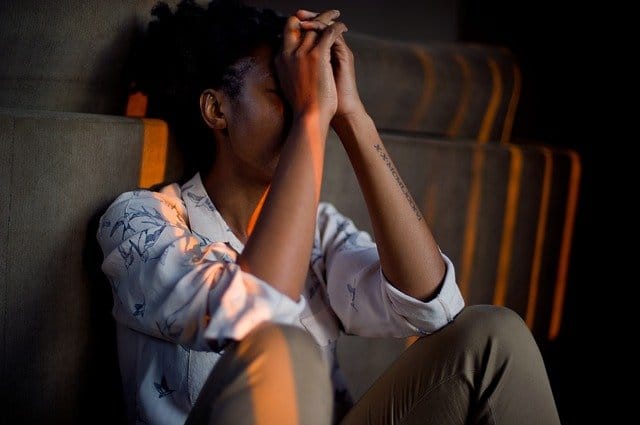
Physiologically, a drug overdose can affect anyone who consumes an excessive amount of a substance.
However, those most vulnerable can be protected with an awareness of why certain people are more likely to suffer from a drug overdose.
Genetically, individuals will have a certain tolerance to a particular drug or substance.
Some people will naturally be able to consume more, but those who have a low tolerance to alcohol, for example, will be more at risk of experiencing an overdose.
Individuals can also have a lower tolerance for reasons other than their biological make-up.
Those who don’t consume drugs often or have a condition which affects their body’s ability to process a drug can be at greater risk from lower quantities.
Consuming drugs inherently impacts the body, and the risk of drug overdose is therefore equally impacted by the state of the body as it is by the quality and quantity of the drug ingested.
Those with certain conditions, such as those that affect cardiovascular health, can be at a greater risk of overwhelming their system and experiencing an overdose.
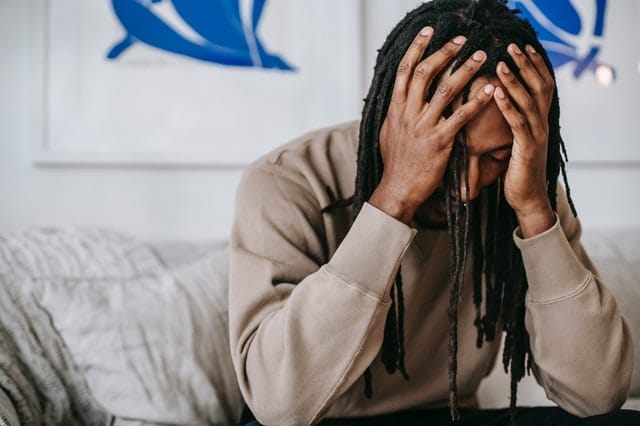
In a similar way as physical health, mental health can impact an individual’s vulnerability to drug overdose.
Individuals who live with depression or post-traumatic stress disorder (PTSD), for example, are at greater risk of experiencing overdoses.
When consuming drugs, the mode in which the substance is taken can be just as important as the substance itself when it comes to how likely an individual is to experience an overdose.
Those who inject drugs, for example, are at a greater risk of overdose due to the swiftness with which this method gets substances circulating throughout the body.
Mixing drugs is a notoriously dangerous practice, and it most definitely increases the risk of experiencing an overdose.
While two substances may be different in effect and ingestion method, they can combine when it comes to overwhelming the brain and body, resulting in a higher overdose risk.
This rule applies to all substances, not just recreational drugs.
Consuming a substance in combination with prescription medication can also increase the risk, so it is vital to check the labels on all tablets to make sure they do not pose any risks.
Taking drugs alone is a simple yet integral risk factor when it comes to the likelihood of overdose.
Alone, individuals are more likely to lose track of the quantities of a substance they have ingested.
Additionally, they will be without anyone to identify the early signs of overdose and are likely to continue consuming a substance beyond a safe limit.
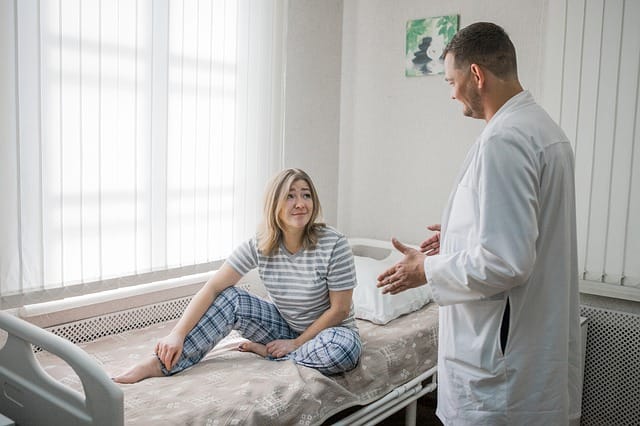
Receiving treatment for an overdose can be a very stressful and demanding process, and therefore the best way to avoid the complications that arise as a result is to understand and practice the principles of drug overdose prevention.
By reading articles such as this, individuals immediately lower their risk of overdose.
Many instances of drug overdose result from users being unaware of the risks that they are taking, and so the simplest and most effective preventative measure is to learn.
Anyone who consumes recreational drugs can make themselves and their friends immediately safer by learning about the signs of overdose, the short and long-term risks of overdose, and the correct behaviours to adopt when one occurs.
This education might also include the adoption of preventative products.
For example, fentanyl test strips [5] can be used to detect the levels of this drug in a person’s body in order to help prevent overdose.
Before consuming a recreational substance, take the time and effort to fully understand what it is and what risks it poses.
In many instances, a substance can be consumed on the fly, without proper consideration of what it is and what it does to the body.
This can be due to inexperience, a lack of consideration for the risk of overdose, or be due to peer pressure.
Individuals can seek out information that better helps them plan and coordinate their substance use.
This could be found on the packaging of a drug or online.
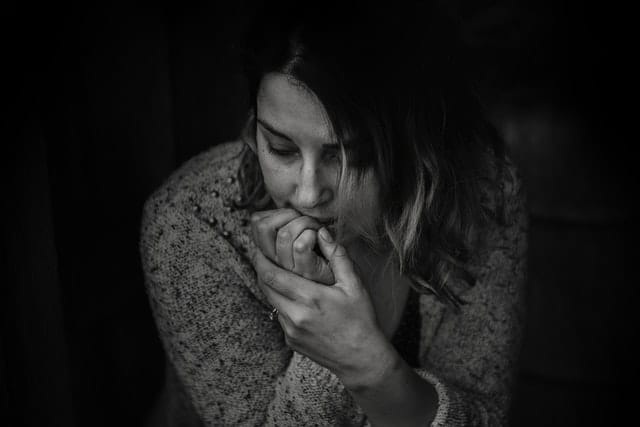
The simplest steps towards avoiding overdose are, in most cases, the most effective.
Doing the little things, even if they seem obvious, can often make the difference between safe substance use and an overdose.
Individuals should do what they can to avoid mixing substances, consuming substances alone, taking substances they do not fully understand them, and pushing themselves to continue using a substance when something doesn’t feel right.
Patience is key when it comes to consuming substances.
Whether it is alcohol or a more illicit substance, one of the best ways to ensure the body isn’t being overwhelmed is to set a pace that feels comfortable.
To do this, individuals need to stay in tune with how they feel both physically and emotionally.
If a sense of losing control begins to arise, go without a substance for a while until calm resumes.
If it doesn’t, abstain completely from then on.
As noted above, consuming a substance alone dramatically increases the risk of overdose.
As a result, it’s important that those looking to consume a substance do so within the presence of friends.
These friends need to be those who care about your well-being and will be honest when it comes to when you ought to stop.
Taking drugs with strangers can help, but it is better to be surrounded by those who care about you and want to ensure your safety.

There is a strong yet complex relationship between drug overdose and drug addiction.
Those who are addicted to consuming certain substances are more likely to experience substance use disorders, and those who suffer from an overdose may well have an abuse problem.
In order to prevent the occurrence or recurrence of drug overdose, it’s important to acknowledge if an individual has a substance use disorder and whether they would benefit from substance abuse support.
Those with drug addictions can benefit from speaking with a therapist about their relationship with a certain substance.
These sessions can direct attention to the thoughts and behaviours that consistently fuel substance abuse and increase the risk of overdose.
From these discussions, individuals can learn how to properly recognise the risks they are facing and adopt the behaviours needed to manifest a healthier, less substance-reliant lifestyle.
A large reason why individuals consistently consume a substance is that they have a physical craving for it.
Their bodies have become so used to a drug that they cannot go without it due to the overpowering withdrawal symptoms.
Detox helps individuals fight through this withdrawal and reclaim a physiological independence from a drug.
With this freedom, they can rebuild a life that carries less risk of overdose.
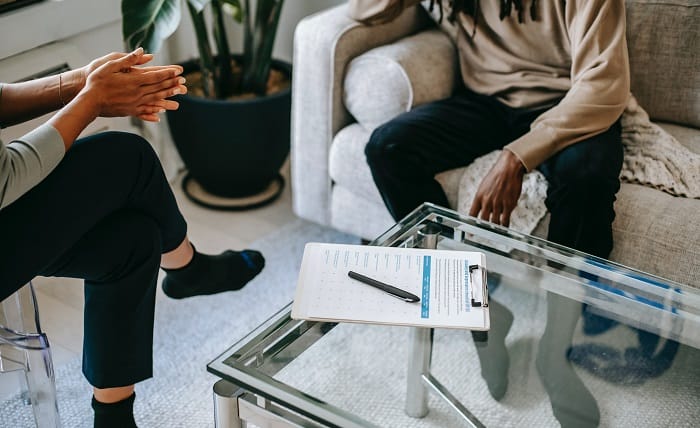
The processes of addiction detox and therapy can be supported by the careful and monitored use of specific medications such as benzodiazepines.
The reason for this is that these substances can lessen the burden the mind and body have on dangerous drugs and ease individuals into a sober lifestyle.
The use of these medicines must be overseen by a medical professional, however, so that the dependency and resulting overdose risk for one substance does not simply transition to this new substance.
Individuals who are aware of their overdose risk can take steps to help themselves.
This often takes the form of attending sessions that introduce them to others in their situation and provide a space for conversation and mutual support.
UKNA (Narcotics Anonymous), [6] for example, is a 12-step group based on the famous Alcoholics Anonymous that helps those who abuse substances by providing them with a sense of community, camaraderie, and group support.

Drug overdose can be a dangerous and devastating thing for anyone to experience, whether they regularly use recreational drugs, have tried a new substance for the first time or have simply made a mistake with their prescription.
Knowing how to spot the signs of a drug overdose really can make the difference between life and death.
However, the safest way to handle a drug overdose is to remove the possibility of an overdose in the first place.
Getting help from a professional drug and alcohol rehab will give you the best chance of beating drug addiction once and for all.
We can connect you with a wide range of private or public drug and alcohol rehab services wherever you are in the UK.
Every addiction treatment centre we recommend will be vetted by the Care Quality Commission (CQC) [7] in England and Wales, or the Care Inspectorate (CI) [8] in Scotland.
Whatever your concerns around addiction may be, we are here to help.
Call our experts today for free on 0800 140 4690
[1] https://www.wearewithyou.org.uk/advice-and-information/advice-for-you/signs-of-a-drug-overdose
[2] https://pubmed.ncbi.nlm.nih.gov/7430530/
[3] https://www.betterhealth.vic.gov.au/health/healthyliving/drug-overdose#symptoms-of-overdose
[4] https://www.ncbi.nlm.nih.gov/books/NBK470415/
[5] https://pubmed.ncbi.nlm.nih.gov/33333419/